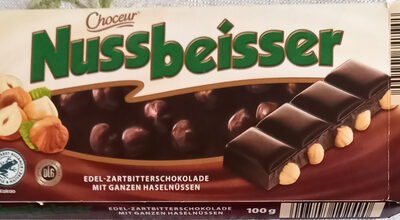
Barcode: 4047247102490
Nussbeisser
HALAL
📝 Reason: The product ‘Nussbeisser’ contains ingredients that are generally considered Halal, with the exception of butterfat, which is Doubtful without Halal certification. The absence of Haram ingredients and E-codes ensures the product is Halal compliant. Islamic sources emphasize the permissibility of plant-based ingredients and the importance of Halal certification for animal-derived products.
📄 Certificates: None
Ingredients:
Details
Understanding the Halal Status of Nussbeisser
Nussbeisser is a delicious and popular confection known for its rich flavors and delightful textures. If you’re wondering about its Halal status, you’re in the right place. Nussbeisser contains ingredients that are primarily plant-based, with one ingredient that raises questions. In this comprehensive guide, we will explore each ingredient and its status concerning Halal compliance.
Ingredients Breakdown
The ingredients of Nussbeisser include:
- Zucker (Sugar)
- Kakaomasse (Cocoa Mass)
- Haselnüsse (Hazelnuts)
- Kakaobutter (Cocoa Butter)
- Butterreinfett (Butterfat)
- Emulgator Lecithine (Soja) (Soy Lecithin)
- Vanilleextrakt (Vanilla Extract)
Zucker (Sugar)
Sugar is generally considered Halal. It’s a common ingredient in many sweets and does not originate from any animal source. For further details on sugar’s Halal status, refer to this source.
Kakaomasse (Cocoa Mass)
Cocoa mass, derived from cocoa beans, is Halal as it undergoes no animal processing. You can enjoy this rich ingredient without any worries. More about cocoa’s Halal status can be found here.
Haselnüsse (Hazelnuts)
Hazelnuts are entirely plant-based and Halal. They add a nutty flavor and texture to Nussbeisser. Check the Halal status of nuts here.
Kakaobutter (Cocoa Butter)
Cocoa butter is derived from cocoa beans and is considered Halal. It enriches the texture and flavor profile of Nussbeisser, making it a delightful treat. For more on cocoa butter’s Halal status, refer to this link.
Butterreinfett (Butterfat)
Butterfat can be the point of contention regarding Halal compliance. Its status can be Doubtful depending on whether the source of the milk is Halal certified. If you wish to consume products containing butterfat, ensure that it is sourced from Halal-certified dairy. You can read more about butter’s Halal status here.
Emulgator Lecithine (Soja) (Soy Lecithin)
Soy lecithin, an emulsifier used to blend ingredients, is plant-based and generally considered Halal. It is commonly found in many processed foods. Find the Halal status of soy lecithin here.
Vanilleextrakt (Vanilla Extract)
Vanilla extract, when free of alcohol, is Halal and adds a delicious flavor to Nussbeisser. It’s derived from natural sources, ensuring its Halal compliance. More on vanilla’s Halal status can be found here.
Conclusion
In summary, Nussbeisser is largely considered Halal compliant due to its predominantly plant-based ingredients. The only ingredient that raises a flag is butterfat, which requires careful sourcing to ensure it is Halal-certified. The absence of Haram ingredients along with the majority of plant-based components supports its Halal status, making it a tasty option for Muslims seeking sweet treats. For further confirmation, always check for Halal certifications on the packaging where possible.

